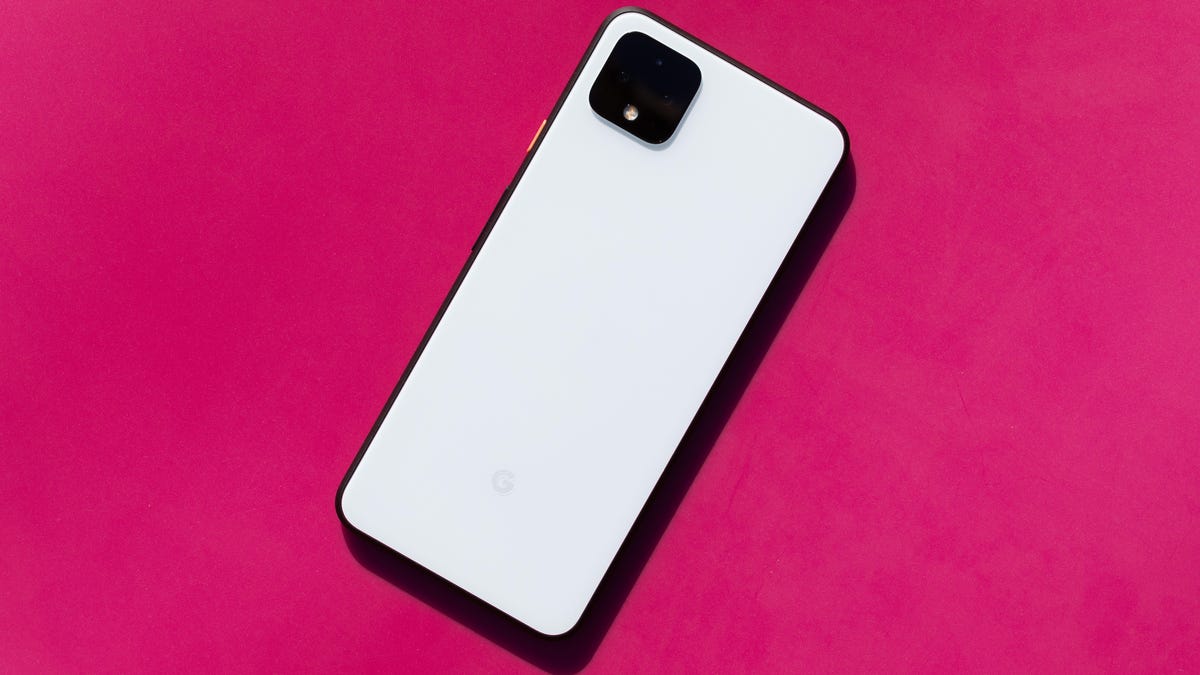RCS messaging on Android? Free me from my Google messaging mess first
Commentary: Google's new Messages app is a throwback locked to a single phone and laptop.

Google's Pixel 4 XL phone
Sorry if I'm not getting excited about Google pushing RCS messaging, its Android answer to Apple iMessage technology. I welcome the features now arriving in the company's Messages app, but I have much deeper problems after being stuck for years in a Google messaging mud bog. Along with that, RCS (Rich Communication Services) comes through a new Messages app that's a step backward from the good parts of Google's technology.
People mock Google's messaging strategy. Right now its efforts are scattered across existing tools like Messages, Hangouts and Duo after leaving behind exterminated ones like Allo and Google Talk. My problem with the company is much more basic. I can't rely on Hangouts or Messages on my Google Pixel 4 phone to do simple things like text my wife that I'm picking up our kid from school.
The problem begins with Hangouts. For years, it's been excruciatingly slow to load a conversation about half the time I need to. In the test I performed a few minutes ago, it took about 3 minutes. This problem extends back to the Nexus phone days. Mysteriously, the problem doesn't afflict iPhones I've had, so often I reach for an Apple device to use my Google messaging service.
Given all the bother with Hangouts, I thought I'd try Google's Messages app. Google is investing in it, and it's got the new RCS features. That includes sharing bigger photo and video files, showing receipts after your contact has read your messages, indicating when your contacts are typing, improving group chats and interacting with company accounts.
Messaging on Android could use the help. It's lagged Apple's iMessage technology for years, doing a disservice to the hundreds of millions of us using Android. But messaging is deceptively complicated, and my trouble with Google's services are emblematic of how hard it is to accommodate different carriers, phones and phone makers.
Often when loading a Google Hangouts conversation on Android, I get to watch this throbber spin for minutes.
I couldn't get Messages to work, but Google straightened me out here: I had to switch off text messages in Hangouts (and maybe fixed the Hangouts waiting in the process). But that just led me to realize that Messages is, for me, a regression. In short, it's incompatible with my multidevice life.
Where Hangouts spans my three laptops , three phones and two iPads , Messages can handle only one laptop and one phone -- one with a SIM card installed.
And on that one laptop, it can run in only one browser at a time. If I want to use it on an iPad or iPhone, I have to do so via a browser. (Google's messages.google.com web interface unhelpfully offers a download link for the Android app when I visit with my iPhone or iPad.)
I tried to set Google Messages as my default SMS app, but it turns out Google Hangouts overrides that setting when you set it to handle SMS.
I'm a tech journalist, and I know I use way more gadgets and browsers than the average person. But it's not unreasonable to want a service that works on a laptop, tablet and phone. Or on both home and work PCs.
Also, I can't use Messages with my old Android phone, which I use in the evenings and overnight, because it doesn't have a SIM card. And there's no Gmail integration.
To switch the Messages web interface from one device or browser to another, you have to launch the Android app and scan a QR code. It's a pain. It's the kind of thing you'd associate with a carrier or cable TV company trying to prevent you from taking your business elsewhere, not with Google.
Google takes this approach because the phone is where the data is stored. The company says it limits synchronization from that phone to one browser to be sparing with data usage and to preserve battery life.
That's admirable, but I just dumped Messages and went back to Hangouts. Google has always been a cloud-savvy company, exemplified by services like Gmail, G Suite and Google Voice and products like Chrome OS that unchain you from a single device. That's the messaging style I need, and it's what Hangouts delivers.
Hangouts isn't perfect. I worry the cloud-centric approach is incompatible with end-to-end encryption, a privacy feature where Apple messaging still leads. And it doesn't work with the RCS from Google and carriers like AT&T, Verizon, T-Mobile and Sprint.
RCS sounds nice. But I'd be happy with plain vanilla text messages if I could just get them on all my digital devices.

